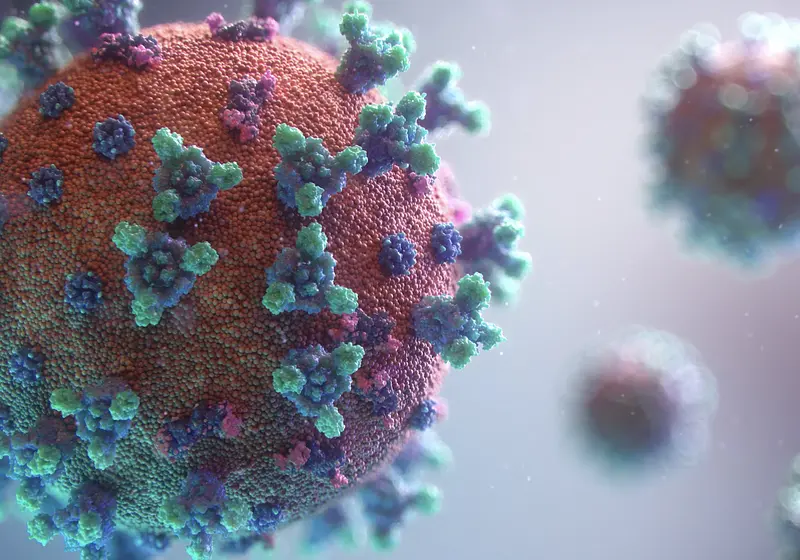The COVID-19 Pandemic
If anyone were to describe three major events that happened in 2020 to sum up the year, the COVID-19 pandemic would definitely be included as one of them. The pandemic not only caused over 300,000 people to lose their lives in just the United States, but also led to many serious health complications and financial disasters. With the virus still active in our daily lives, many businesses and restaurants have closed down or restricted their customer capacity.
Many have hardships paying their bills and are being kicked out of their houses because rent was simply unaffordable due to rising unemployment rates. The virus caused a big economic toll, not only in the U.S, but in many other countries around the world. Despite recoveries in labor markets and some stock markets, the pandemic continues to act as a financial obstacle for many and the economy as a whole.
Let us slide into your dms 🥰
Get notified of top trending articles like this one every week! (we won't spam you)The COVID-19 Vaccine
So how does science come into play to possibly reverse the economic situation? One answer to this question is the release of the COVID-19 vaccine. Multiple vaccine trials have been conducted throughout the year to streamline production. Because the vaccine development process is typically much more extensive, the development of a vaccine this quickly post-outbreak can only be done through scientists' endless hours of research and exploration into formulating a vaccine safe and effective for everyone to use.
It helps to first look at how our bodies battle disease to comprehend how COVID-19 vaccines function. The COVID-19 pathogen spreads through droplets that may enter the body after being in contact with an infected person. This means that even if they're not showing symptoms, transmission is still possible.
When the virus enters the body and begins infecting cells, a person may start presenting symptoms. To combat infection, our immune system uses a multitude of different methods. Our blood includes red cells that bring oxygen to tissues and organs, and infection-fighting white or immune cells work together to combat diseases.
If the body encounters the same virus again the body's T-lymphocytes, called memory cells, go into action quickly. B-lymphocytes develop antibodies to attack when recognizable antigens are identified.
Without us needing to have the disease, COVID-19 vaccines help our bodies establish immunity to the virus that induces COVID-19. Different forms of vaccinations function in different ways and provide defense, but they provide our body with memory so that T-lymphocytes and B-lymphocytes know how to combat the virus if the body is infected.
It can take several days or weeks for your body to produce and use all the germ-fighting resources required to get over the infection the first time a person is infected with COVID-19. After vaccination, it takes a few weeks for the body to develop T-lymphocytes and B-lymphocytes.
There are 3 main types of vaccines currently in Phase 3 of clinical trials testing. These include the mRNA vaccine, the protein subunit vaccine, and the vector vaccines from Pfizer, Moderna and AstraZeneca. They all work differently but have the end goal of stimulating the production of antibodies to fight the virus if one ever catches COVID-19.
Since they are still being tested, they are only available to a small population of frontline workers or doctors and are proven to be 95% effective against COVID-19. You would need 2 doses of the vaccine, one three weeks after first time vaccination, to receive the most protection.
Take the Quiz: What Kind of Political Personality Are You?
Ever wondered what role you’d play in the political world? Take this fun quiz to find out!
How the Vaccine Affects The Economy
The coronavirus pandemic's rapid and major shock, and subsequent shutdown steps to curb its spread, have thrown the world economy into a deep recession. The global economy will contract by 5.2 percent this year according to World Bank estimates. Emerging markets and emerging economies are forecast to decline this year by 2.5 percent.
As market prices, commerce, and finance have been seriously disrupted, economic activity among advanced economies is projected to shrink 7 percent in 2020. Per capita wages are predicted to fall by 3.6% contributing to increased chances of falling into poverty for millions of people this year. The pandemic single-handedly plunged the world economy into an all-time low.
The ACT Accelerator, pioneered by WHO, is in cooperation with the world's leading international health organizations. It is a unique global initiative that facilitates the creation and equal delivery of the research, therapies and vaccines needed by the world to tackle COVID-19.
Furthermore, a report commissioned by the Bill & Melinda Gates Foundation states that the economic benefits of having a national and inclusive vaccine solution available to all will be at least $153 billion in 2020-21, and will increase to $466 billion by 2025. This is in fact a way more economically beneficial solution; this adds up to more than 12 times the projected cumulative expenses of the ACT Accelerator of $38 billion.
Ever since the release of the news of the vaccine, Wall Street was has no doubt been pumped by the vaccine reports, with the S&P 500 index up about 3.7 percent after the first update on the Pfizer trial was released on Nov. 9. But it will likely take months for the news of the vaccine to convert into increased spending by households with higher incomes. Additionally, the release of a vaccine may also make Americans feel more comfortable about their employment and salaries, with many currently unemployed workers thinking that they'll return to work in a few months.
Although it is difficult to make a direct connection between the release of a vaccine by the scientific community and direct economic recovery due to increased business expenditures, it is safe to speculate that the reopening of millions of restaurants and job positions will help heal the economy. Many economists do agree that it may take years before the economy will return to normal before the pandemic.
The richer and more developed countries' economies will also benefit from the vaccine more than poor countries, since richer countries have already ordered millions of vaccines ahead of time for widely accessible use.
Science Saving The Economy
On one hand, one may argue that the economy is slowly returning to normal due to people's adjusted lifestyles to COVID-19, but on the other hand, the scientific community's research and contribution to the development of a vaccine in helping the economy is not negligible. Without the knowledge of the genetic makeup of the viruses and the laboratory techniques needed to analyze the virus itself, it is impossible to create a safe and effective vaccine in a short time.
The delay of a vaccine would only delay the opening of many businesses and worker employment, halting the recovery of the economy.
Thus, scientific research is crucial in face of a pandemic like this and could have a big effect on the future of many countries' economy.










